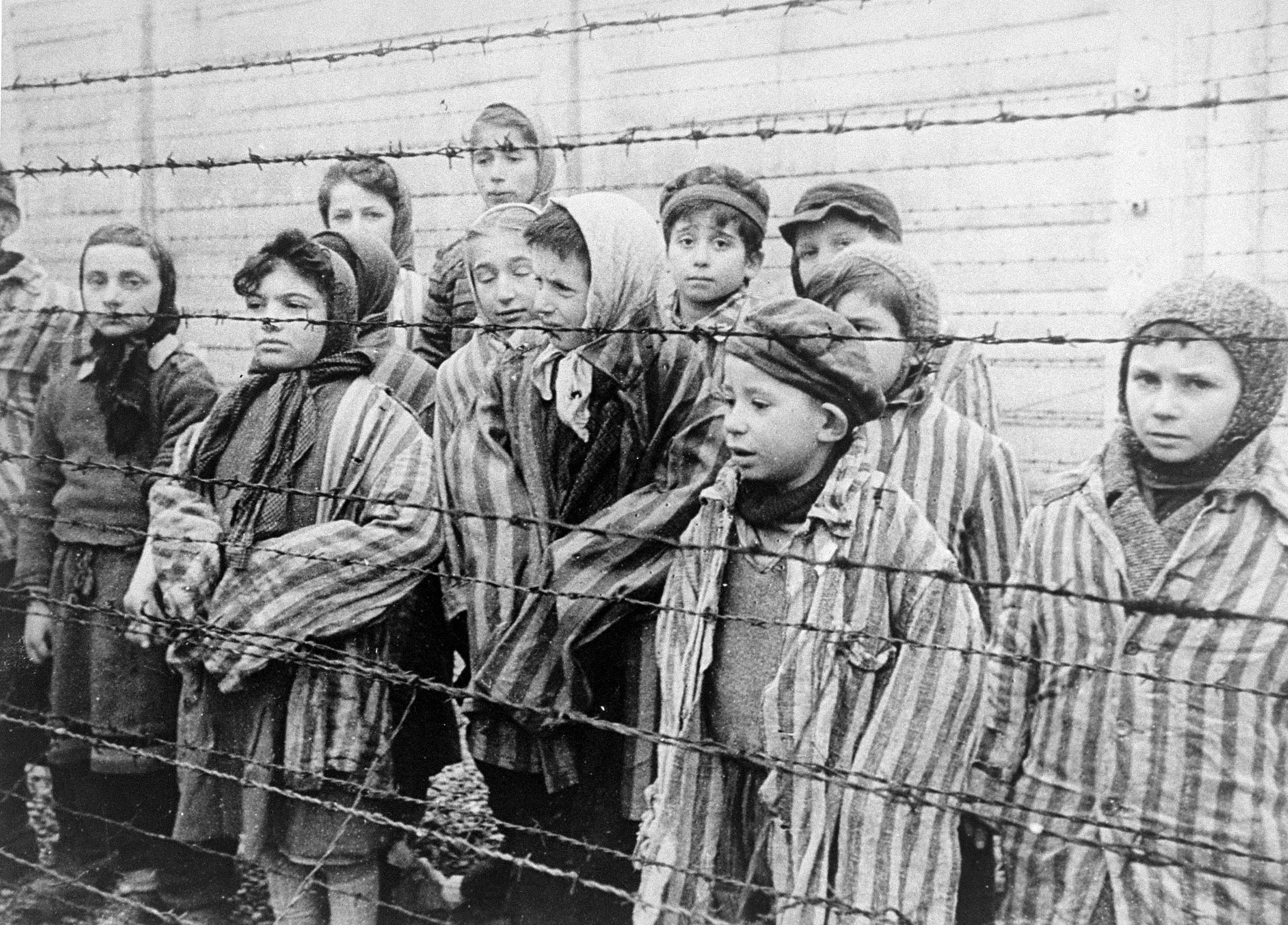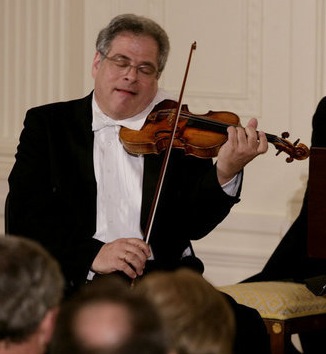Auschwitz Concentration Camp,
Poland.
Illustration: VICE.COM
Schindler's List.
Composer: John Williams.
Violin solos by Itzhak Perlman (see, below).
Violin solos by Itzhak Perlman (see, below).
Available on YouTube at

Photograph from the Soviet Film of the liberation of Auschwitz, taken by the film unit of the
First Ukrainian Front, shot over a period of several months, beginning on 27 January 1945,
by Alexander Voronzow and others in his group.
Child survivors of Auschwitz, wearing adult-size prisoner jackets, stand behind a barbed wire fence. Among those pictured are Tomasz Szwarz; Alicja Gruenbaum; Solomon Rozalin; Gita Sztrauss; Wiera Sadler; Marta Wiess; Boro Eksztein; Josef Rozenwaser; Rafael Szlezinger; Gabriel Nejman; Gugiel Appelbaum; Mark Berkowitz (a twin); Pesa Balter; Rut Muszkies (later Webber); Miriam Friedman; and twins Miriam Mozes and Eva Mozes wearing knitted hats.
Date: 1945.
Source: USHMM/Belarusian State Archive of Documentary Film and Photography http://collections.ushmm.org/search/catalog/pa14532
Author: Alexander Voronzow and others in his group,
ordered by Mikhael Oschurkow, head of the photography unit.
(Wikimedia Commons)

Arbeit Macht Frei.
'Work makes you free'. Or ,'Work brings you freedom' depending on the translation.
This was a sign commonly seen throughout Concentration Camps, such as Auschwitz,
often seen on the front gate upon entry. It was essentially psychological torment,
as most prisoners were aware that the only way to earn 'freedom', was to die.
Illustration: FUNNYJUNK.COM

Ed Sullivan congratulates Itzhak Perlman
after a concert at ZOA House in Tel Aviv.
Photo: 28 August 1958.
Author: PINN HANS
(Wikimedia Commons)
His parents, Chaim and Shoshana Perlman, were natives of Poland and had independently immigrated to Palestine in the mid-1930s before they met and later married.
Perlman first became interested in the violin after hearing a classical music performance
on the radio. At the age of three, he was denied admission to the Shulamit Conservatory
for
being too small to hold a violin. He, instead, taught himself how to play the instrument,
using a toy fiddle, until he was old enough to study with Rivka Goldgart, at the
Shulamit Conservatory, and at the Academy of Music in Tel Aviv, where he gave
his first recital at age ten, before moving to The United States to study at the
Juilliard School, with the violin pedagogue, Ivan Galamian, and his
assistant, Dorothy DeLay.

Violinist Itzhak Perlman plays during the
entertainment portion
of The White House State Dinner
in honour of Her Majesty Queen Elizabeth II.
Photo: 7 May 2007.
Source: The White House
Author: Shealah Craighead
(United States Federal Government).
(Wikimedia Commons)

No comments:
Post a Comment